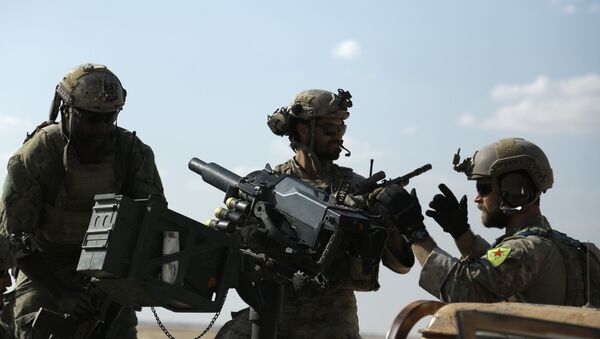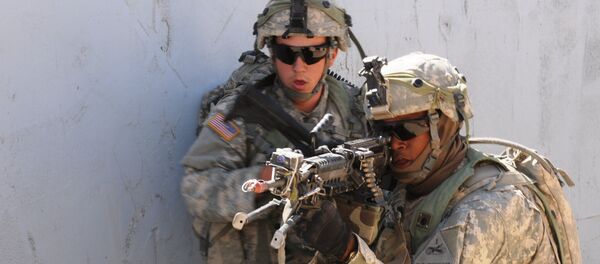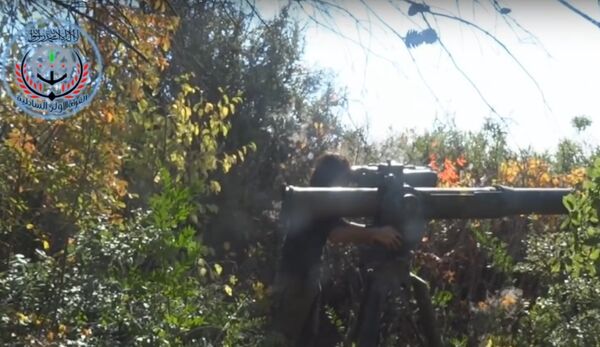Washington's refusal to continue to cooperate with Russia on Syria has shed light of the US' genuine goals in the region and the instruments it has chosen to accomplish these objectives, Veronika Krasheninnikova, a member of Russia's Civic Chamber, noted in her article for online newspaper Vzglyad.
"Russia's goal is clear — we are assisting Syria in the fight against international terrorism in order to prevent [terror threat] from spreading further, toward Russia's southern borders," Krasheninnikova elaborated.
In the eyes of Washington "by any means" apparently means involving terrorist groups like al-Nusra Front, which has changed its name to Jabhat Fatah al-Sham (Front for the Conquest of Syria/the Levant), Krasheninnikova continued.
The Syrian ceasefire agreement required that Washington would separate the so-called moderate opposition from Jabhat Fatah al-Sham terrorists. However, she remarked, Washington was not willing to do so, since it contradicts its aim to oust Bashar al-Assad.
Remarkably, back in 2015 Charles Lister of the Brookings Doha Center highlighted in his op-ed that al-Nusra Front's major objective to topple Assad coincides with that of the Free Syria Army and other US-backed rebel groups.
"Although many of the most prominent commanders in the recent Idlib operations were Islamists of one kind or another, their roots in the province's society appear to have discouraged the kind of inter-group and intra-ideological rivalries that have arisen elsewhere in the country. This is not to dismiss the very real differences that exist between, say, Jabhat al-Nusra [al-Nusra Front] and the FSA-affiliated 13th Division, but the very fact that they did not appear to negatively affect advances on regime-held territory is a sign that they are a powerful unifying factor," Lister wrote in early May, 2015.
"The missiles were handed over directly to us. Americans are on our side," the terrorist claimed, as quoted by German magazine Focus.
After the disruption of the US-Russian cooperation on Syria the question remains open whether the US will escalate the conflict and whether it will lead to a direct confrontation between Washington and Moscow in Syria, Krasheninnikova noted.
She referred to the fact that voices have emerged in Washington calling upon the Obama administration to send anti-aircraft weapons to "Syrian rebels." US policymakers are seriously concerned by the possibility of Assad liberating Aleppo from the Islamists. In the event of this, the US' goals in Syria would be shattered, they believe.
However, "US Secretary of State John Kerry has been forced to admit that Congress would never approve the use of force in Syria, while the US people strongly oppose the prospect of [American] soldiers dying in yet another Middle Eastern war following 15 years of perpetual conflicts with no victory in sight," Krasheninnikova stressed.
Krasheninnikova assumed that Kerry's "aggressive" approach toward Syria is apparently aimed at paving the way for Hillary Clinton taking over the leadership reins.
The best and most reasonable thing the US could do in Syria, according to the Russian politician, is to step aside and allow Damascus, backed by Russia, to liberate Syria from foreign-backed terrorist hordes.
It would only take a few months to defeat the Islamists in Syria if Washington and its Middle Eastern allies stopped providing weapons to so-called rebels in the region and withdrew Western Special Ops from Syria, she believes.




